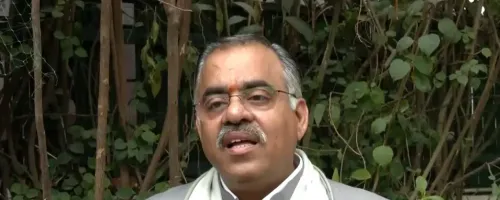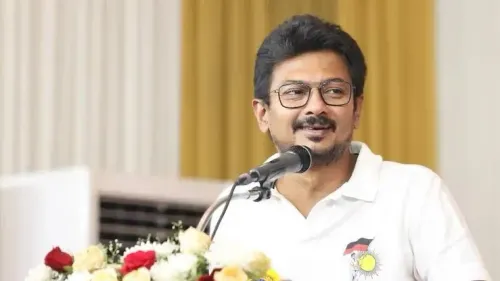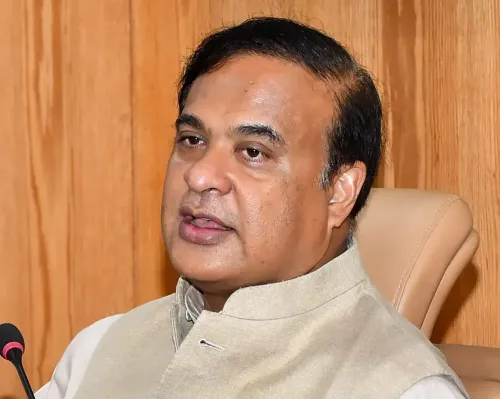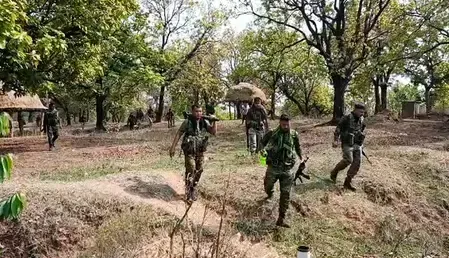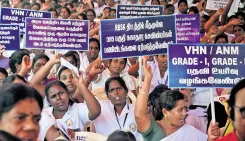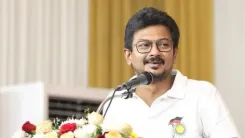What Happened During Omar Abdullah's Meeting with PM Modi After the Pahalgam Terror Attack?
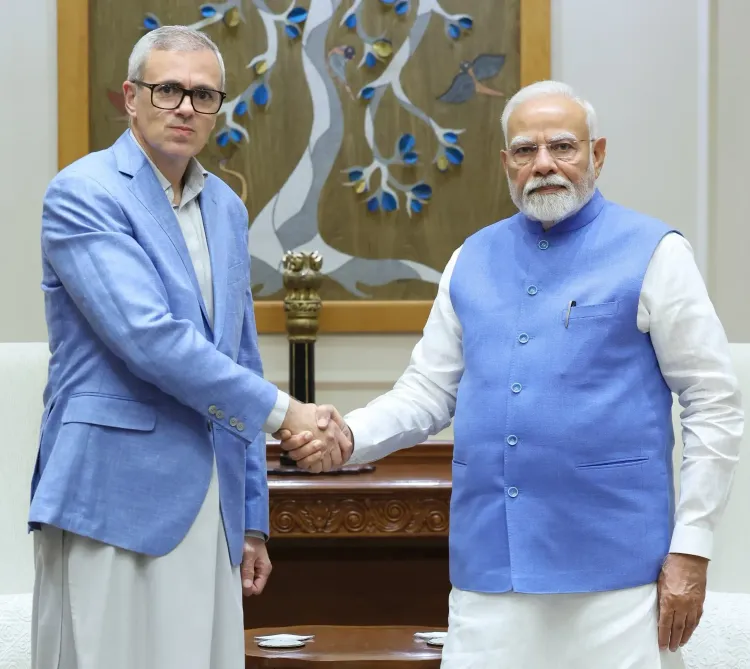
Synopsis
Key Takeaways
- Omar Abdullah and PM Modi met to discuss security following a deadly attack.
- The Pahalgam terror attack resulted in the deaths of 26 civilians.
- India is enhancing security measures in response to the attack.
- The Prime Minister has authorized military operations against terrorist groups.
- India is implementing diplomatic measures against Pakistan.
Jammu, May 3 (NationPress) The Chief Minister of Jammu and Kashmir, Omar Abdullah, engaged in a crucial meeting with Prime Minister Narendra Modi in New Delhi on Saturday to address the security landscape within the Union Territory following the devastating terrorist incident in Pahalgam. This brutal attack claimed the lives of 26 civilians, predominantly tourists.
This marks the first discussion between Omar Abdullah and the Prime Minister since the tragic events of April 22, where terrorists targeted and segregated innocent individuals based on their religion in the scenic Baisaran meadow of Pahalgam.
The meeting, held at the Prime Minister's residence, extended for roughly 30 minutes.
Sources indicate that both leaders reviewed the shifting security dynamics in Jammu and Kashmir and evaluated strategies to avert future assaults.
While no formal announcements were made, it is understood that both leaders emphasized the necessity of upholding law and order and ensuring justice for the affected families.
The Pahalgam incident, which specifically aimed at civilians in a popular tourist area, has resulted in intensified security protocols across critical regions of Jammu and Kashmir.
Heightened tensions have emerged between India and Pakistan after Lashkar-e-Taiba (LeT) terrorists, allegedly backed by Pakistan, perpetrated this heinous act, resulting in the loss of 26 innocent lives, including 25 tourists, in Baisaran.
The nation expressed outrage over this cowardly attack, with Prime Minister Narendra Modi asserting in his initial response to the Pahalgam killings that the perpetrators, along with their handlers and supporters, would be relentlessly pursued.
The Prime Minister has granted operational autonomy to the armed forces to retaliate against those responsible for the Pahalgam attack.
Prior to this decision, Defence Minister Rajnath Singh held a 40-minute meeting with the Prime Minister on Monday, following a comprehensive briefing from the Chief of Defence Staff regarding military readiness for various contingencies.
In an ongoing effort to counteract Pakistan diplomatically, India has ceased all postal exchanges with the neighboring country. This decision complements the closure of the Attari-Wagah border and the suspension of the Indus Water Treaty, along with the deportation of all Pakistani nationals residing in India.
Recently, Jammu and Kashmir's Lieutenant Governor Manoj Sinha conducted a security review meeting with Army Chief General Upendra Dwivedi in Srinagar, where he directed the Army to utilize necessary force to track down the perpetrators of the Pahalgam attack.
Additionally, to convey a strong message to terrorists and their supporters, security forces have continued demolishing the residences of identified terrorists. Last Friday, homes belonging to Adil Hussain Thokar and Asif Sheikh were razed in the Tral and Bijbehara regions, both of whom were linked to the LeT and involved in the Pahalgam tragedy. To date, 10 homes associated with active terrorists in the Kashmir Valley have been destroyed.
On Monday, the Jammu and Kashmir Assembly unanimously condemned the abhorrent terrorist attack, passing a resolution to that effect.
A significant crackdown utilizing all available resources continues in the southern Kashmir mountains to locate those responsible for the Pahalgam attack.


